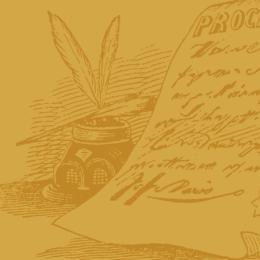The Alien and Sedition Acts

The Alien and Sedition Acts, enacted in 1798, were a series of four laws passed by the Federalist-dominated Congress and signed into law by President John Adams. These acts emerged during a tense period in American history when relations with France were strained, political parties were polarized, and fears of foreign influence and internal dissent were rampant.
The late 18th century was fraught with international tension, particularly between the United States and revolutionary France. The U.S. recently emerged from the American Revolution and was navigating its newfound independence in a world dominated by European powers. While President George Washington advocated for neutrality, political factions began to align with foreign interests. Federalists, led by John Adams and Alexander Hamilton, leaned toward Britain, whereas the Democratic-Republicans, led by Thomas Jefferson and James Madison, were weary of British relations and favored the historic alliance with France.
In 1797, a controversy called the XYZ Affair, heightened tensions. French diplomats demanded bribes from American envoys to negotiate disputes, leading to public outrage in the U.S. and calls for military preparedness. Amidst this quasi-war with France, Federalists saw an opportunity to consolidate power and suppress political opposition, which they associated with Democratic-Republican sympathies.
In 1798, the Federalist dominated Congress, in conjunction with the Adams administration began drafting a set of four laws. These included the Naturalization Act, that extended the residency requirement for immigrants to become citizens from 5 to 14 years. Federalists justified it to ensure that new citizens had sufficient time to adopt American values. However, it was widely viewed as a tool to limit the influence of immigrants, many of whom supported the Democratic-Republicans.
Secondly the Alien Friends Act authorized the president to deport any non-citizen deemed dangerous to the peace and safety of the United States. The broad and vague language gave the executive branch broad authority. Next the Alien Enemies Act allowed the president during war time to detain or deport male citizens of a hostile nation.
Finally, the Sedition Act stirred the most outcry. The law criminalized "false, scandalous, and malicious writing" against the government. It targeted criticism and dissent, effectively undermining the First Amendment's protections of free speech and press.
Federalists argued that these measures were necessary for national security. They pointed to the quasi-war with France and the potential for subversive activities by foreign agents and domestic dissenters. They claimed that opposition to the government during a time of crisis threatened the stability and survival of the young republic. The Democratic-Republicans vehemently opposed the acts, seeing them as a blatant attack on civil liberties and an abuse of federal power. Jefferson and Madison responded with the Kentucky and Virginia Resolutions, which asserted the principle of states' rights and declared the acts unconstitutional. These resolutions introduced the concept of nullification, wherein states could refuse to enforce federal laws they deemed unconstitutional.
The Alien and Sedition Acts were enforced selectively, primarily targeting Democratic-Republican newspapers and critics of the Adams administration. Among the most notable cases was that of Matthew Lyon, a Vermont congressman and Democratic-Republican who was fined and jailed under the Sedition Act for criticizing President Adams.
Despite Federalist claims of national security, the acts backfired politically. The perception of overreach and repression galvanized Democratic-Republican opposition and contributed to a broader backlash against the Federalists.
The Alien and Sedition Acts were short-lived. The Naturalization Act was repealed in 1802, and the other three acts expired or became obsolete by 1801. The backlash against the acts played a significant role in the Democratic-Republican victory in the election of 1800, often referred to as the "Revolution of 1800," which saw Jefferson ascend to the presidency and the demise of the Federalist Party. John Adams continued to defend the acts, in 1813 in a letter to Jefferson he wrote “We were then at War with France: French Spies then swarmed in our Cities and in the Country. Some of them were, intollerably, turbulent, impudent and Seditious. To check these was the design of this law. Was there ever a Government, which had not Authority to defend itself against Spies in its own Bosom? Spies of an Enemy at War?” Jefferson continued to believe the acts were against the values of the American Revolution.
The legacy of the Alien and Sedition Acts endures as a cautionary tale about the balance between national security and civil liberties. They underscore the fragility of constitutional rights in times of perceived crisis and highlight the dangers of partisan overreach. The acts also set a precedent for later debates about immigration policy, freedom of speech, and the limits of executive power. The laws plagued Adams’ legacy and are still relevant today in debates on free speech.
Further Reading:
- The Alien and Sedition Acts of 1798: Testing the Constitution by Terri Diane Halperin (John Hopkins University Press, 2016)
- John Adams by David McCullough (Simon and Schuster, 2001)






